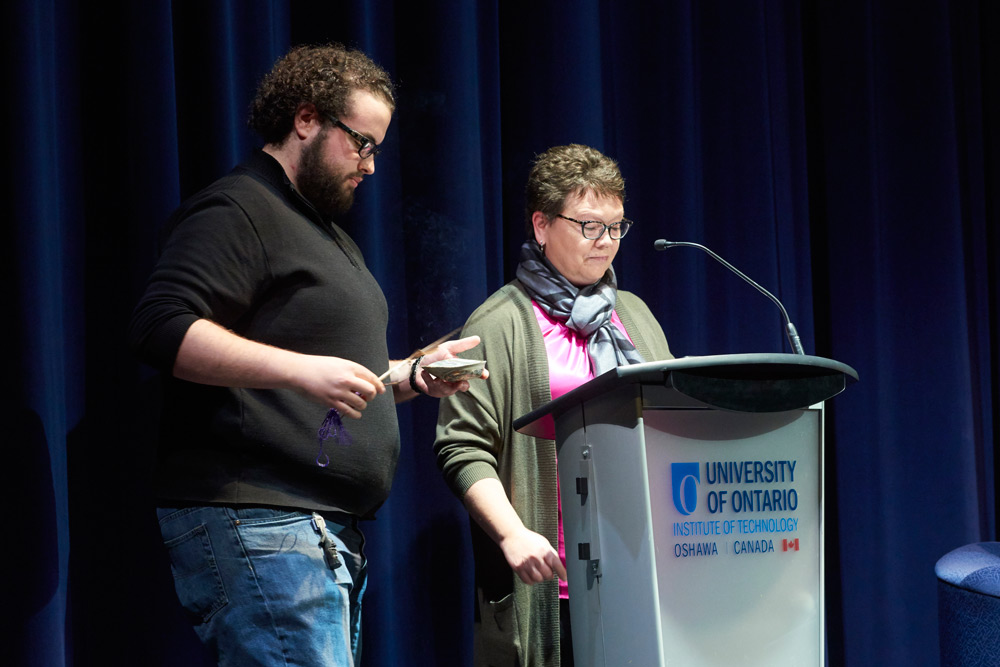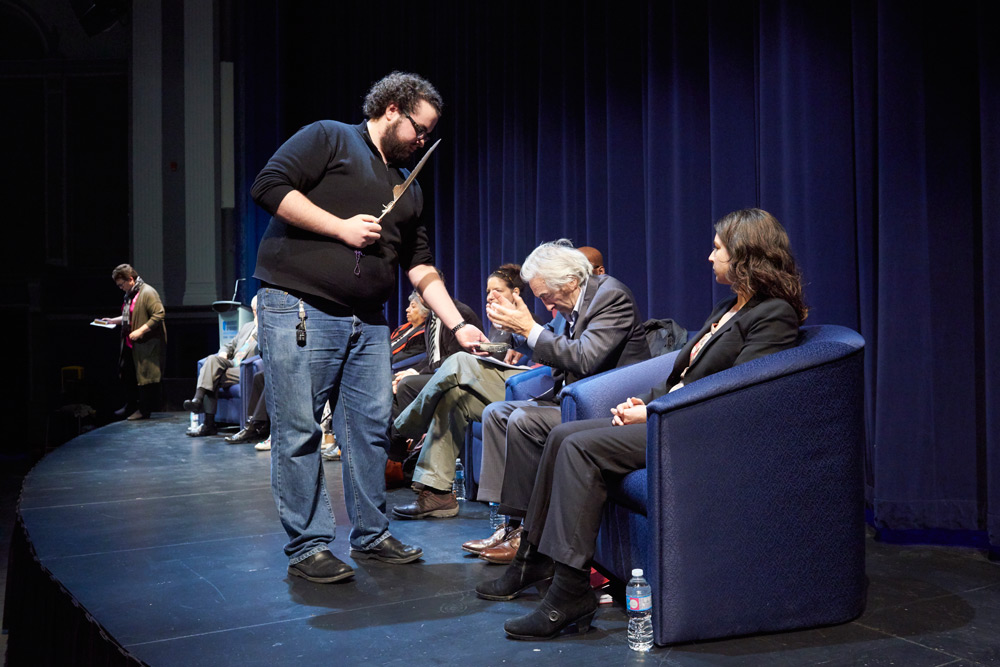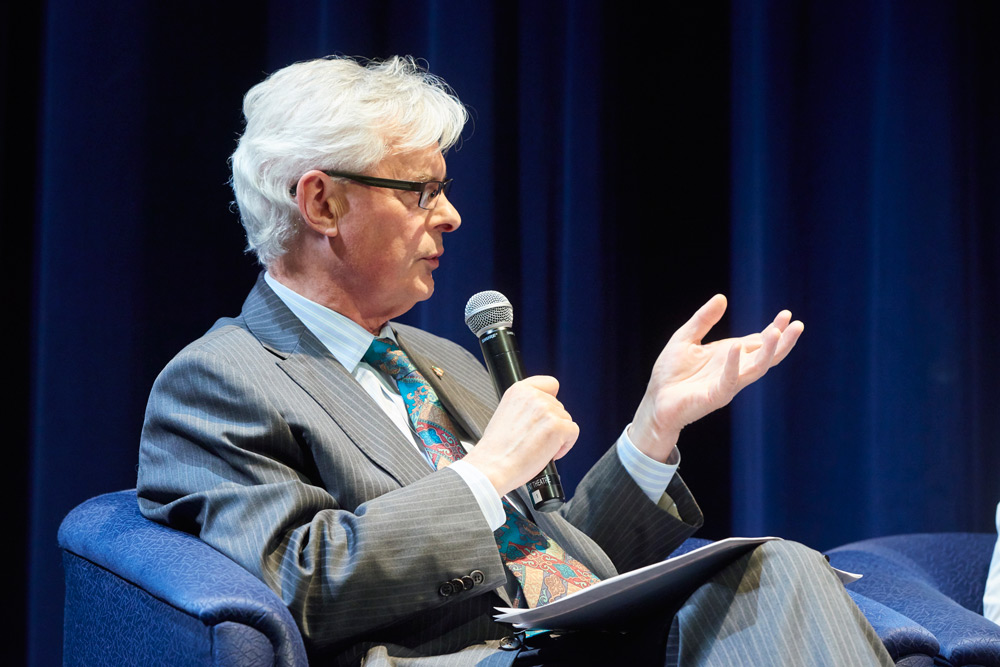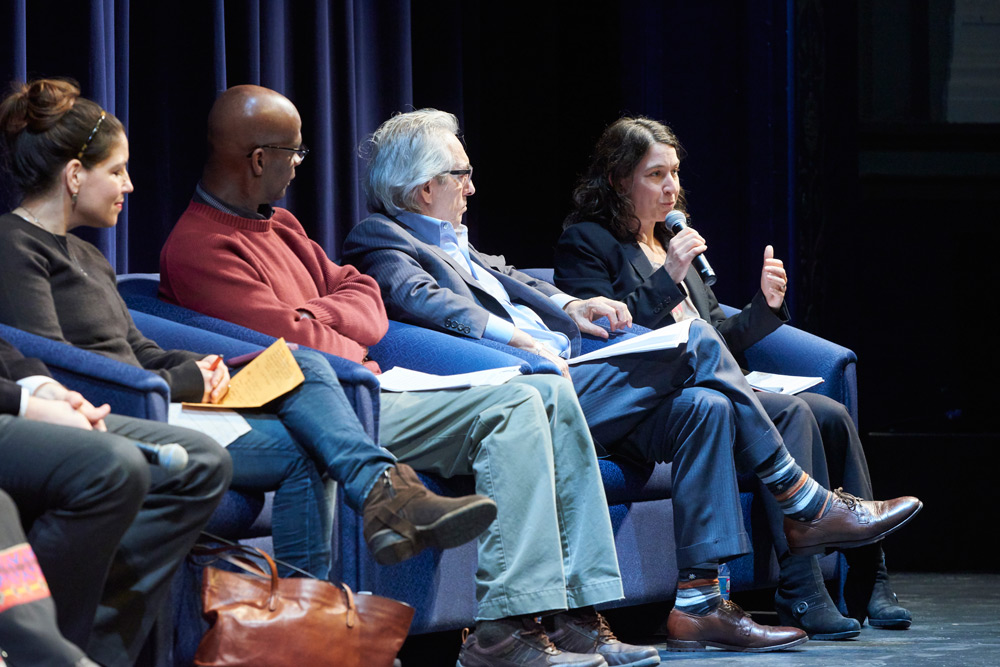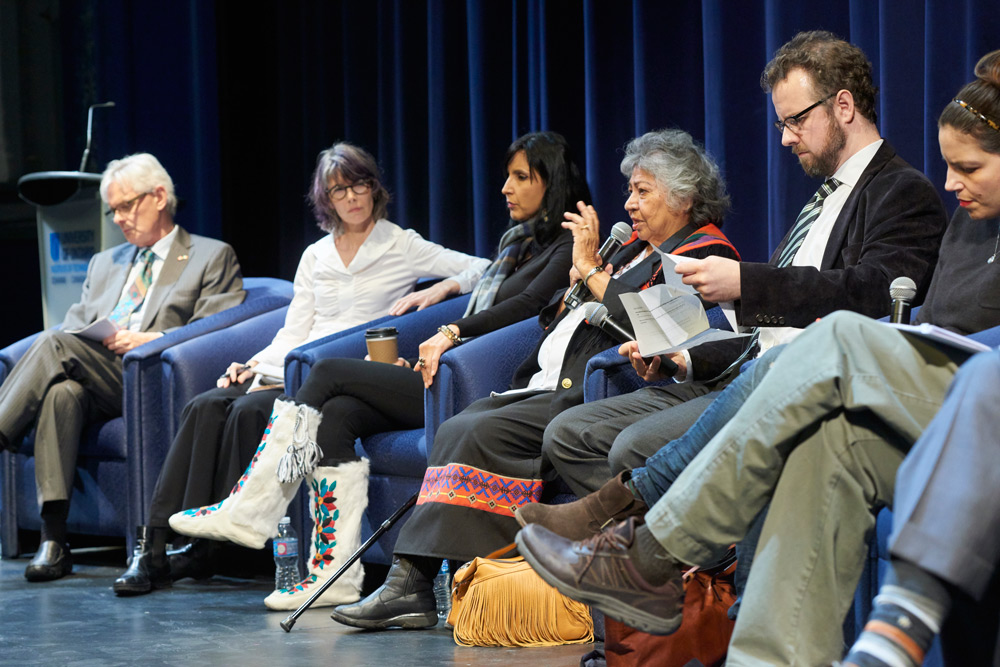UOIT panel highlights how education can help heal Canada's relationship with Indigenous peoples
April 8, 2016
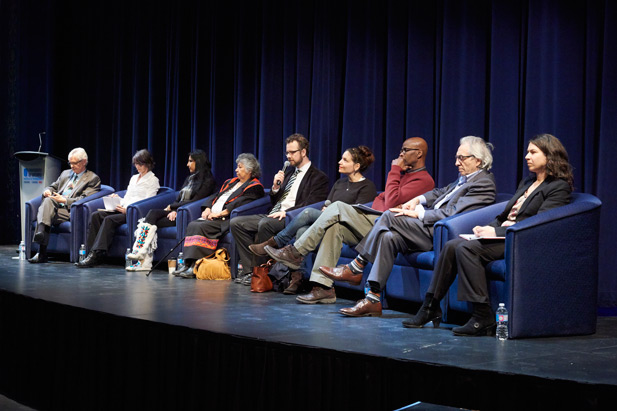
What can universities do to promote reconciliation between Canada and First Nations, Métis and Inuit peoples?
The University of Ontario Institute of Technology (UOIT) recently hosted a thoughtful and engaging panel discussion exploring this and other questions. The event aimed at fostering awareness, understanding and action in response to the Truth and Reconciliation Commission’s (TRC) appeal for educational institutions to engage with Indigenous communities and to become leaders in reconciliation.
“Universities have a powerful part to play in advancing reconciliation,” said UOIT President Tim McTiernan. “One of our roles is to encourage discussion and sharing of different ideas through events such as this one. By supporting respectful dialogue that includes differing perspectives, we encourage rather than inhibit engagement, inclusion, diversity and social justice. Through listening we begin to understand each other and ultimately change the way we operate as a society.”
The discussion explored questions such as:
- What does reconciliation mean and why should we strive for it?
- What types of assumptions can hinder reconciliation?
- What steps can be taken to make universities more welcoming places for Indigenous students?
- What is the best way for universities to integrate education about Indigenous issues into curriculum?
“This event got us thinking about how each of us is implicated in the process of reconciliation,” said Thomas McMorrow, PhD, Assistant Professor, UOIT Faculty of Social Science and Humanities, who organized the event and moderated the panel. “My hope was that everyone who took part on the panel and in the audience would come away with deeper insight into the questions, ‘Why reconciliation?’ and ‘Why university?’ The event was an opportunity for students, faculty, staff and members of the public, both Indigenous and non-Indigenous, to reflect on what our university can and should be doing to fulfil its public mission. Our actions going forward will be the true indicator of the panel’s success.”
Panelists included:
- Kirsten Anker, Assistant Professor, McGill University
- Phil Fontaine, Former National Chief, Assembly of First Nations
- Carl James, Director, York Centre for Education and Community, York University
- Kelly LaRocca, Chief, Mississaugas of Scugog Island First Nation
- Thomas McMorrow, Assistant Professor, FSSH, UOIT (moderator)
- Tim McTiernan, President and Vice-Chancellor, UOIT
- Natalie Oman, Assistant Professor, FSSH, UOIT
- Suzanne Stewart, Associate Professor, University of Toronto
- Shirley Williams, Professor Emeritus and Elder, Trent University
TRC background:
The Indian Residential School (IRS) system is a dark part of Canadian history – and it’s a history many Canadians either don’t know about or don’t fully understand.
Starting in 1876 (after the passage of the Indian Act) and continuing into the late 20th century, approximately 150,000 First Nations, Métis and Inuit children were removed from the influence of their families and culture and placed in residential (boarding) schools as a way of assimilating them into the dominant Canadian culture.
The TRC was established to help educate Canadians about the trauma resulting from the IRS system and start the process of healing Canada's relationship with Indigenous people.
5 > 1